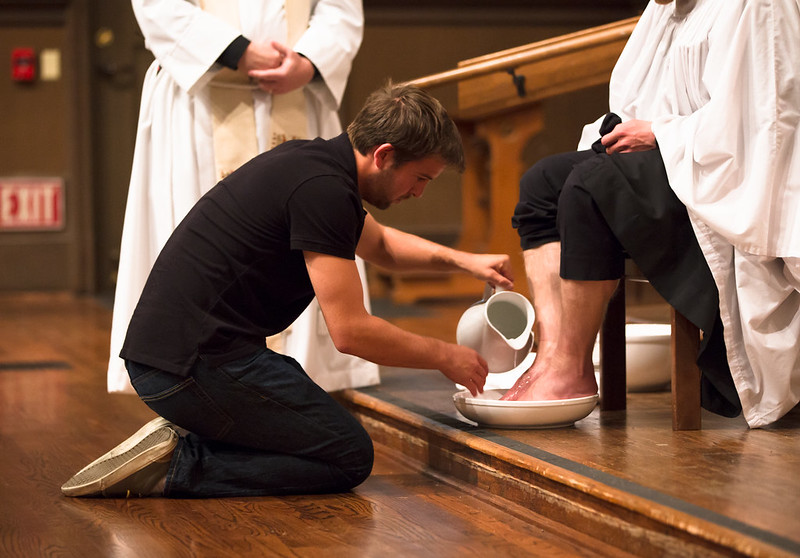Leadership I give to you, not as the world giveth, give I to you. Yeah, I know. Jesus didn’t really say those words, but he did give us his leadership style in the things he did. He prescribed leadership to his disciples with teachings such as recorded in Matthew 20:25-28 “But Jesus called them to Himself and said, “You know that the rulers of the Gentiles lord it over them, and those who are great exercise authority over them. Yet it shall not be so among you; but whoever desires to become great among you, let him be your servant. And whoever desires to be first among you, let him be your slave—just as the Son of Man did not come to be served, but to serve, and to give His life a ransom for many.” Sad to say most churches follow the world’s form of leadership.

And why not? All the experts have conducted studies, followed the trends within each generation’s priorities and passions, drawn conclusions, and published volumes. Did I mention that they work? Well, in business they do, but Jesus didn’t establish the church as a business.
Within many churches, leadership style is upside down to what Jesus intended. The movie “The Poseidon Adventure” creates in my mind a vivid images of what I’m talking about.
In the movie, a tsunami hit the cruise ship Poseidon broadside and capsized it. As it slowly sank, people were getting trapped and drowned. One person realized the ship must be upside down in the water. That meant getting to a safer area in the ship required they had to do the opposite of what seemed right. They had to “climb to the bottom” of the ship. Going down was in their reality, going up. The characters fought among themselves over that tactic. After all, there were no doors or portholes on the bottom of the ship. Going there just delayed the inevitable. Nevertheless, that planned worked and those who pursued that route found rescuers cutting a hole to let them out.
First Be a Servant
In like manner, Jesus has called his church to climb down to the position of leadership. In saying that the world’s form of leadership is not to be found in the church, he directly confronted the pride of life. Pride makes demands in our hearts, seeking attention, honor, recognition and praise. Or, it silences those who tend to be more timid in crowds when the Holy Spirit prompts them to speak. Both errors create In our minds a void which demands to be filled. Jesus spent three years with his disciples showing what kingdom leadership looks like and how it accomplishes God’s will.
The verses that quickly come to mind, are from John 13. Starting in verse 12, John lets us see and experience one of Jesus’ lessons. The scene takes place in the room where the disciples celebrated their last Passover meal with Jesus. After dinner, he gets up, removes his clothes, wraps himself with a towel and begins to wash the disciples’ feet. When he had finished, he explained his action.
- He is their teacher/master and they are his disciples
- Servants are not greater than their master
- As their lord, he served them
- They are to do the same (have the same mindset as they go forth)
Serve from the Heart

I bristle when some churches have regular foot-washings. I bite my tongue when I remember that some people are ministered to in their hearts in doing that, but I feel regular reenacting these verses turns the practice into ritualistic religion, substituting the act for genuine love. It’s easy to save face and do what others expect without–in the heart–climbing down.
Pair John’s description with what is written in Matthew 12:18-21.
“Behold! My Servant whom I have chosen,
My Beloved in whom My soul is well pleased!
I will put My Spirit upon Him,
And He will declare justice to the Gentiles.
He will not quarrel nor cry out,
Nor will anyone hear His voice in the streets.
A bruised reed He will not break,
And smoking flax He will not quench,
Till He sends forth justice to victory;
And in His name Gentiles will trust.”
Matthew was quoting from Isaiah 42. Some images in Jesus’ life come to mind when I read those, things like Jesus taking a whip against the money changers and turning over their tables and calling out the hypocrisy of the Pharisees and Sadducees. Then I also remember the time his disciples ordered one who was casting out demons in Jesus’ name to stop, but he told them to leave the man alone for if he is not against him, they were for him.
Many of the Lord’s teachings show his concern for the condition of the heart as opposed to the outward expression. He said the widow who gave a mite gave more than all the others at the temple. For those who go to temple with an offering and there remember someone whom they offended, Jesus instructed them to leave your offering at the altar, get right with that person, then return to present your gift. He called us to pray for those who hate us, do good to them, even go a second mile. All these are examples of climbing down to leadership.
Psalm 23 Seen From the Giving Instead of Receiving End
I wonder what would happen if we stepped away from looking at the goodness of God in Psalm 23 and instead considered it an expression of how we are to be for others. The first thought I have is the word shepherd. A shepherd leads and serves. Hurders drive. To move cattle, cowboys drive the hurd. They drove hurds of horses. There are accounts of people even driving turkeys from community or state to another in the nineteenth century. That type of leadership is not to be found in the church.

The good shepherd leads his sheep to peaceful places with refreshing clean water. How might we climb lower in hospitality as we serve others?
Do we guide and encourage others in the right way or do we tell them what they should do in a way to bring guilt or condemnation?
Are we there for them when they enter grievous times. Remember, we don’t have to have the answers for them. We need to be there for them, standing with them, sitting with them. Sometimes we need to speak correction, sometimes we need to lift them up. Always we need to make sure they know their good is our intention.
Love From a Pure Heart
In 1 John 4:20, we see that John caught the meaning of these things when he wrote, “If someone says, ‘I love God,’ and hates his brother, he is a liar; for he who does not love his brother whom he has seen, how can he love God whom he has not seen?” (NKJV).
Lording it over others in the world’s way of leading is not showing the Lord’s love. Let’s learn to love, learn to climb down to leadership.



